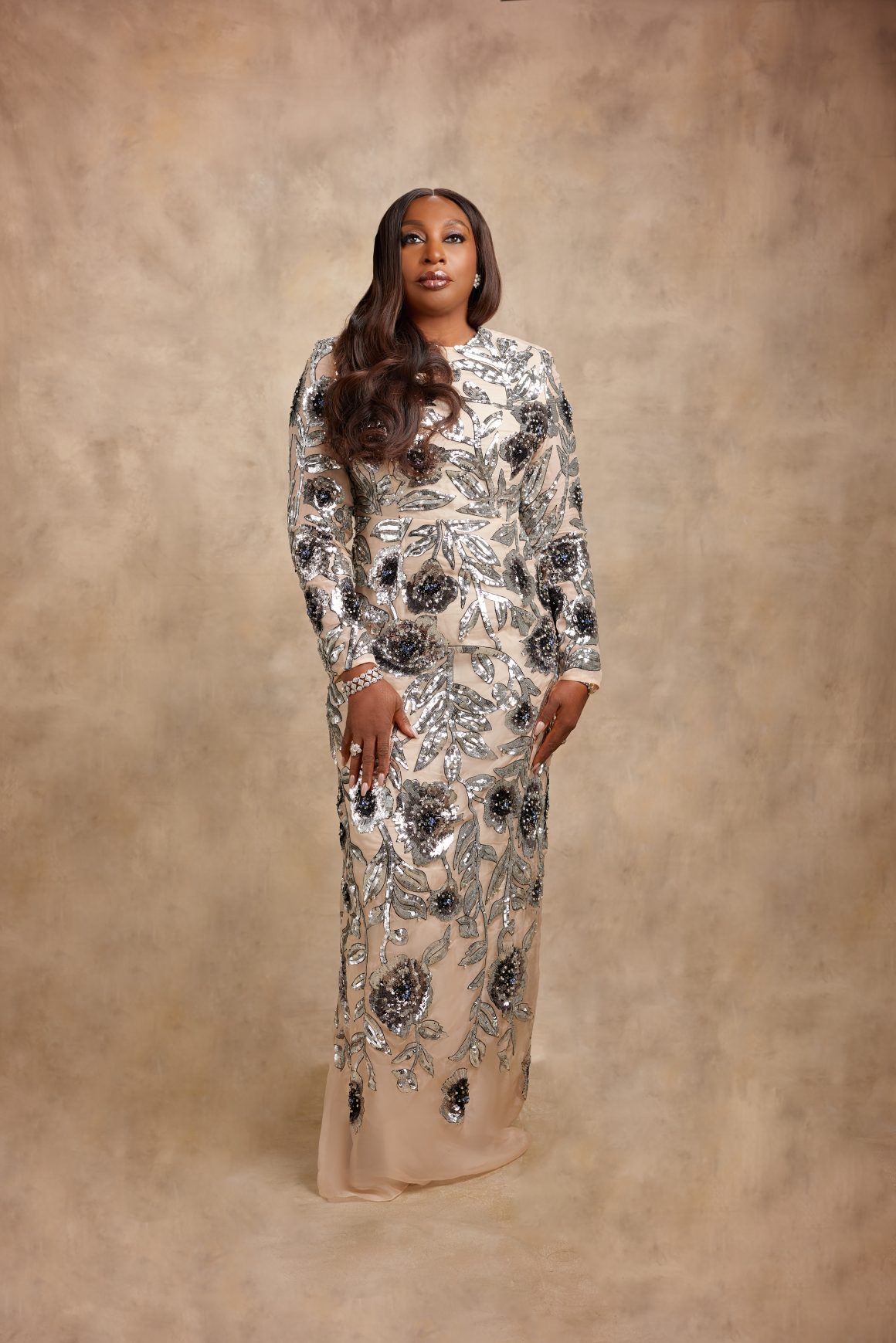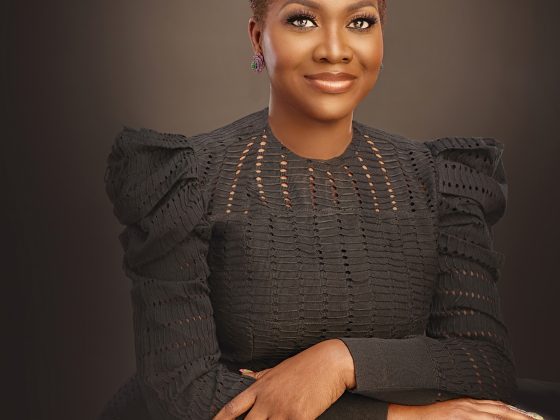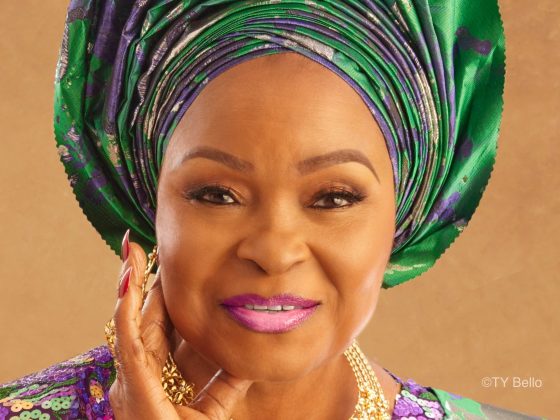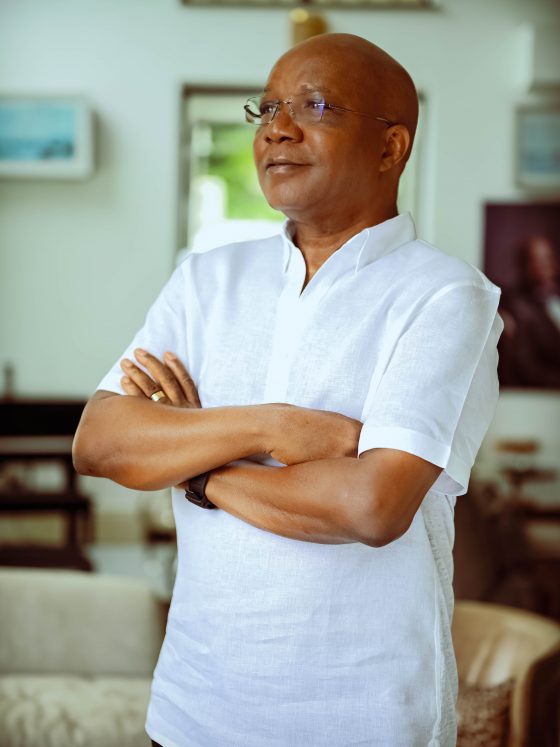From her captivating performances as Ann Haatrope in the beloved ‘90s soap opera “Checkmate” to her trailblazing endeavours behind the scenes, Ego Boyo has effortlessly navigated the realms of acting, producing, and advocacy, cementing her status as a true pioneer in the industry.
It was on the small screen that Ego first captured the hearts of millions across Nigeria. Her portrayal of the sophisticated and enigmatic Ann Haatrope resonated deeply with audiences, earning her critical acclaim and a devoted fanbase. Her grace, poise, and impeccable acting skills quickly made her a household name and an emblem of Nigerian television excellence. However, her journey in the entertainment industry did not stop with her on-screen success. Recognising the need for change and the lack of female representation behind the camera, she made a bold decision to step away from acting and redirect her efforts towards producing and empowering other women in the industry.
In 1996, she founded Temple Productions, a production company committed to telling compelling stories that challenge societal norms and elevate the voices of underrepresented communities. Under her leadership, the platform has become synonymous with quality content and socially conscious narratives that have captivated audiences in Nigeria and beyond. Not stopping there, in her tireless pursuit of equity and inclusivity, she has also actively challenged the status quo and worked to dismantle the barriers that hinder women’s progress in the industry. She consistently advocates for equal representation, fair treatment, and increased opportunities for women on and off the screen.
The goal, she says, is to ”work towards eliminating the objectification and stereotyping of women in our content and the workplace, ensuring that women get opportunities behind the camera in whatever roles they wish.”
In this exclusive interview with THISDAY Style, she shares more about her progress with this, the legacy she hopes to leave behind, and a little bit about family.
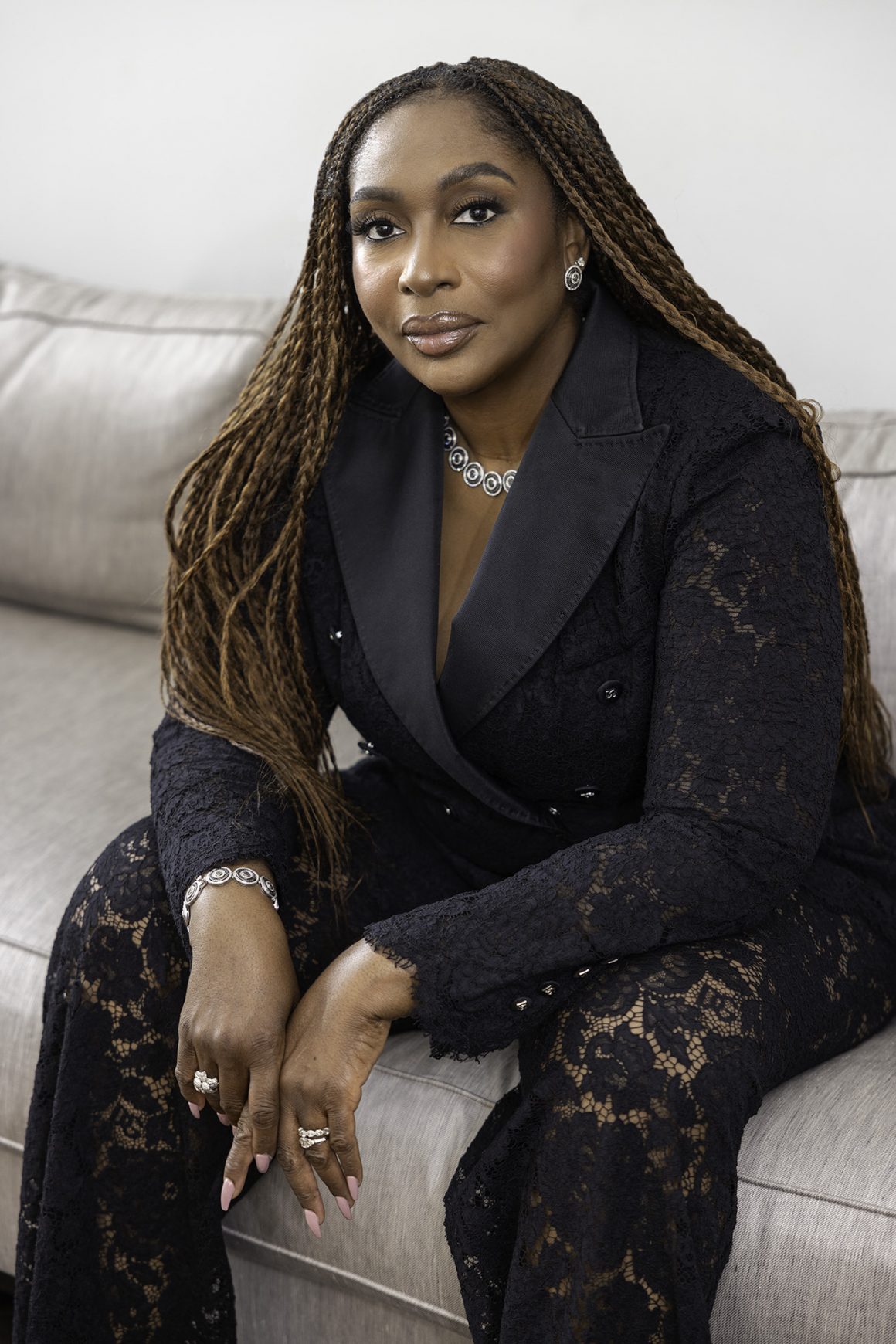
Many people remember you from your acting days in the early ‘90s, particularly in your roles in ‘Violated’ and ‘Checkmate’. Do you still reflect on those days?
Yes, I do reflect on them. They were the essential building blocks of my career.
So how did you feel about leaving your acting career behind and starting your own production company, Temple Productions?
Establishing Temple Productions/Studios and creating the kind of compelling storytelling and films that interest me make the transition worthwhile, as audiences want to see these stories because they address subjects that resonate with them. So, whether it is on screen or behind the scenes, the satisfaction comes from keeping the audience engaged.
Can you share some insights on being behind the screen as a producer rather than in front of it as an actress? I imagine it felt very different.
It’s definitely a different experience. As an actor, you feel and embody the character and become what the role requires of you, but as a producer, you become the curator of the roles and what they need to portray.
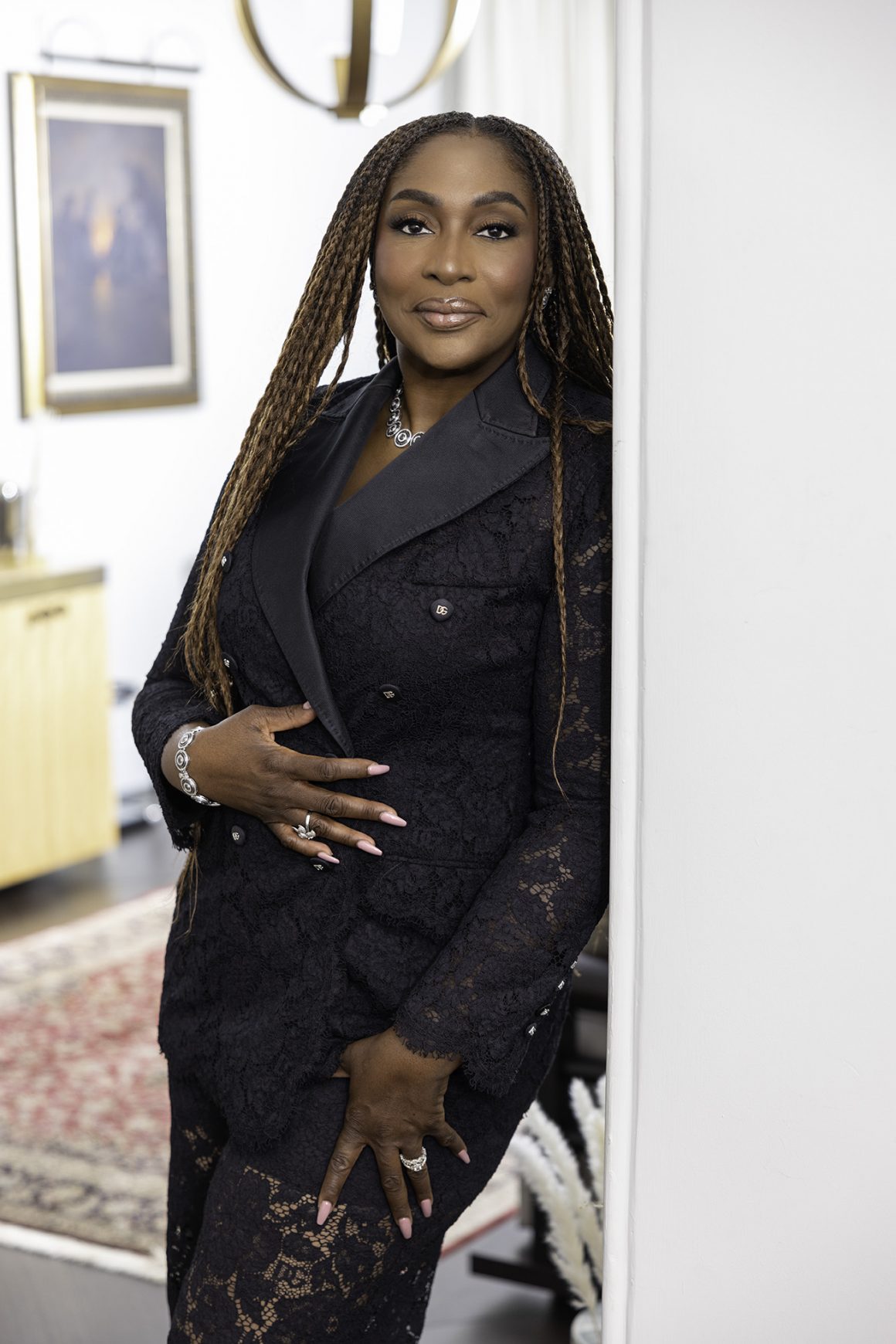
How do you see the new Nollywood industry compared to the ‘90s, when you were active as an actress?
The industry has seen improvements in production quality with higher budgets, better technology, and improved technical skills. Nollywood films now compete in international film festivals and gain recognition globally. Distribution has also expanded, with films being released in cinemas and through online streaming platforms, reaching wider audiences across the globe. I am especially excited about where the content is going and the themes we explore in our films. The diversification has been incredible.
Now as a producer, how do you help navigate the challenges and biases women face in the entertainment industry?
Fostering a work environment that promotes diversity, equity, and inclusion has always been important to me. I was among the first few female producers in the country. So I have been challenging gender stereotypes and encouraging the portrayal of women in diverse roles that go beyond traditional gender roles in my films. The goal is to work towards eliminating the objectification and stereotyping of women in our content and the workplace, ensuring that women get opportunities behind the camera in whatever roles they wish. Mentorship, partnerships with like-minded individuals, and women-led initiatives facilitate equality and empowerment; I am keen to pursue these. Also, being more intentional about the way and manner in which female roles and characters are written in our films.
Your event, “Cocktails and Conversations”, encourages women in film and media to own their narratives. Can you tell us more about the collaboration with Latasha Ngwube, the inspiration behind this event, and its impact?
I had talked to my team about an event around Women’s Day, similar to some I had had in the past, called Reel Women’s Workshop. While we were planning, I happened to chat with Latasha, and she asked me to save a date. We eventually discussed and found we were talking about similar events and decided to merge them, and that’s how this current one came into being. I am convinced that there is great value in having conversations to bring about a change in thinking and make things happen. I hope that this will happen with C&C.
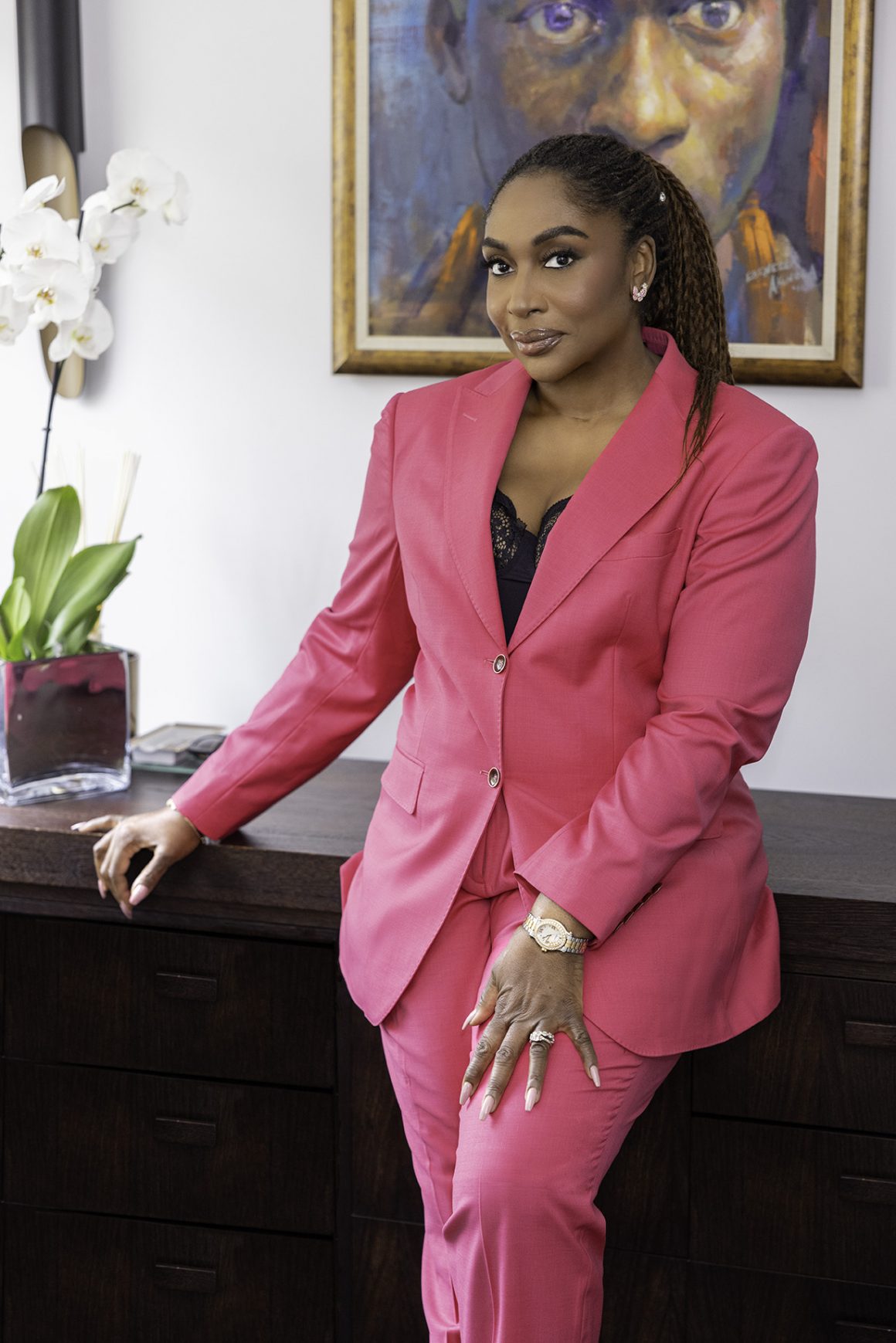
You also recently attended the Africa Soft Power Summit in Kigali. Can you tell us what soft power is? And how your work directly or indirectly contributes to it.
Soft power refers to the ability of a country, organisation, or individual to influence others and shape opinions through non-coercive means, such as culture, values, ideas, and diplomacy. It is often associated with the ability to shape the narrative, build positive perceptions, and garner support from other nations or communities. This involves leveraging cultural assets, educational exchanges, diplomacy, public diplomacy, and various forms of media and communication to foster positive relationships, enhance credibility, and exert influence on a global scale.
Temple Productions and I have consistently contributed to the creative industries through our collaborations and co-productions, and we intend to deepen our kinks with other creatives across the continent.
Our work is all about Africa, African life, African stories, and our unique perspective, presenting the continent’s way of life from a genuine African perspective. We are in the business of exporting African culture, challenging stereotypes and perceptions, and showcasing Africa’s true essence. I fully embrace the vision of the Africa Soft Power Project because it gives us more room to empower African creatives, amplify African voices, and shape a future where Africa’s cultural, creative, and intellectual contributions are fully recognised and valued on the global stage.
What do you believe are the biggest misconceptions about the entertainment industry, particularly for women?
The biggest misconception is probably that we are presumed to be limited to specific roles in our participation in the industry. Yet, we have seen that the largest number of film producers working successfully at this time and employing hundreds of film personnel and technicians are women. We have also been and continue to be the most consistent content providers in the industry. To a lesser degree, there is the misconception that women in the Nigerian industry are only suitable for certain roles and positions and cannot take on more technical responsibilities. We have already proven our competence in writing, producing, and directing, and with more opportunities opening up, there will be more women editors, cinematographers, sound technicians, etc.
What are your thoughts on the current state of gender equality and representation in the entertainment industry, and what changes would you like to see in the future?
Like many other industries, the Nigerian entertainment industry still faces challenges in achieving gender equality and representation. While progress has been made in recent years, there are still gaps that need to be addressed. I would like to see the gender pay gap disappear. Economic empowerment for women can go a long way, so I encourage dialogue around transparent pay policies. I also want financial literacy and economic opportunities to open up for more women in the industry.
The discussions around financing and access to funding still hamper many women from having the ability to fund their work.
There is also a need to take women’s safety in the entertainment industry more seriously and have policies implemented by guilds to handle and deal with this issue. Sexual harassment and abuse should not be as commonplace as they are.
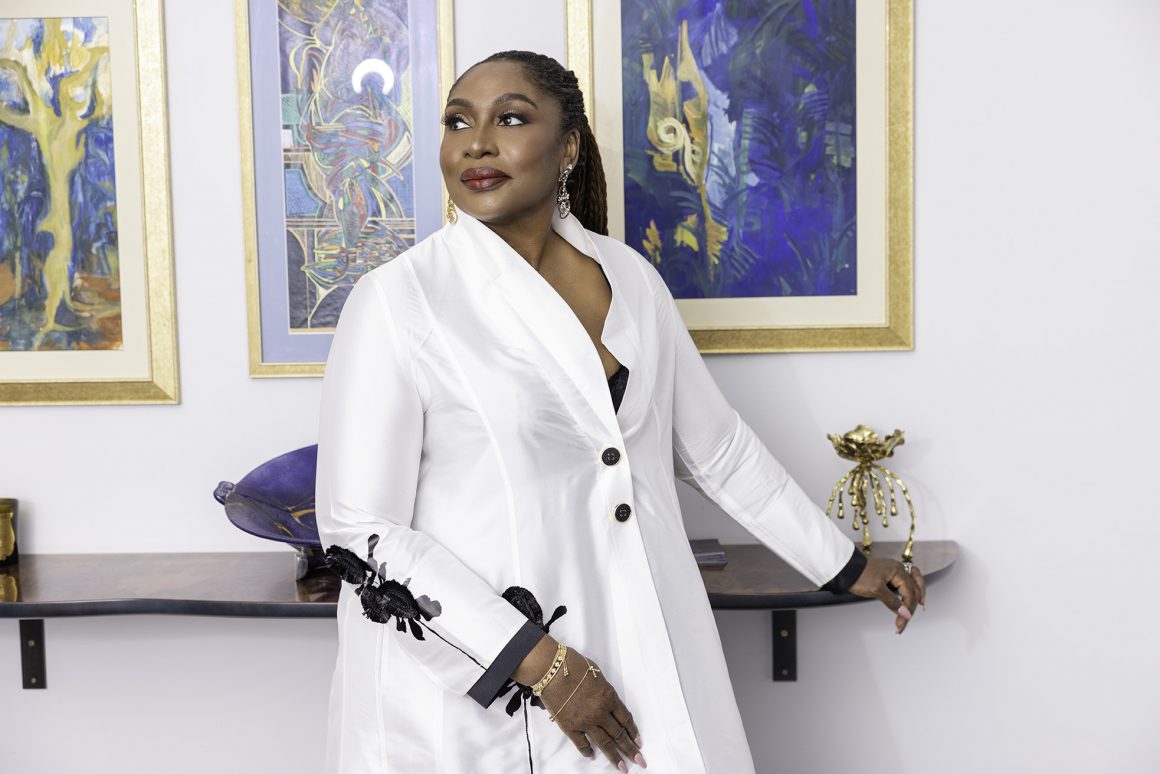
You’ve been married for over 30 years. How has your relationship evolved over the years?
It has evolved naturally, from lovers and friends to partners, parents, and now empty nesters, meaning we are discovering each other again and sharing common interests.
How has family life influenced your career choices and decisions throughout the years?
Once you have a family, it does shape the decisions you make around your career, especially when your children are younger. It has been a big influence on my career.
You are a mother-in-law now. How does that feel?
It feels good. I am so blessed to have a lovely daughter and another child to nurture and love.
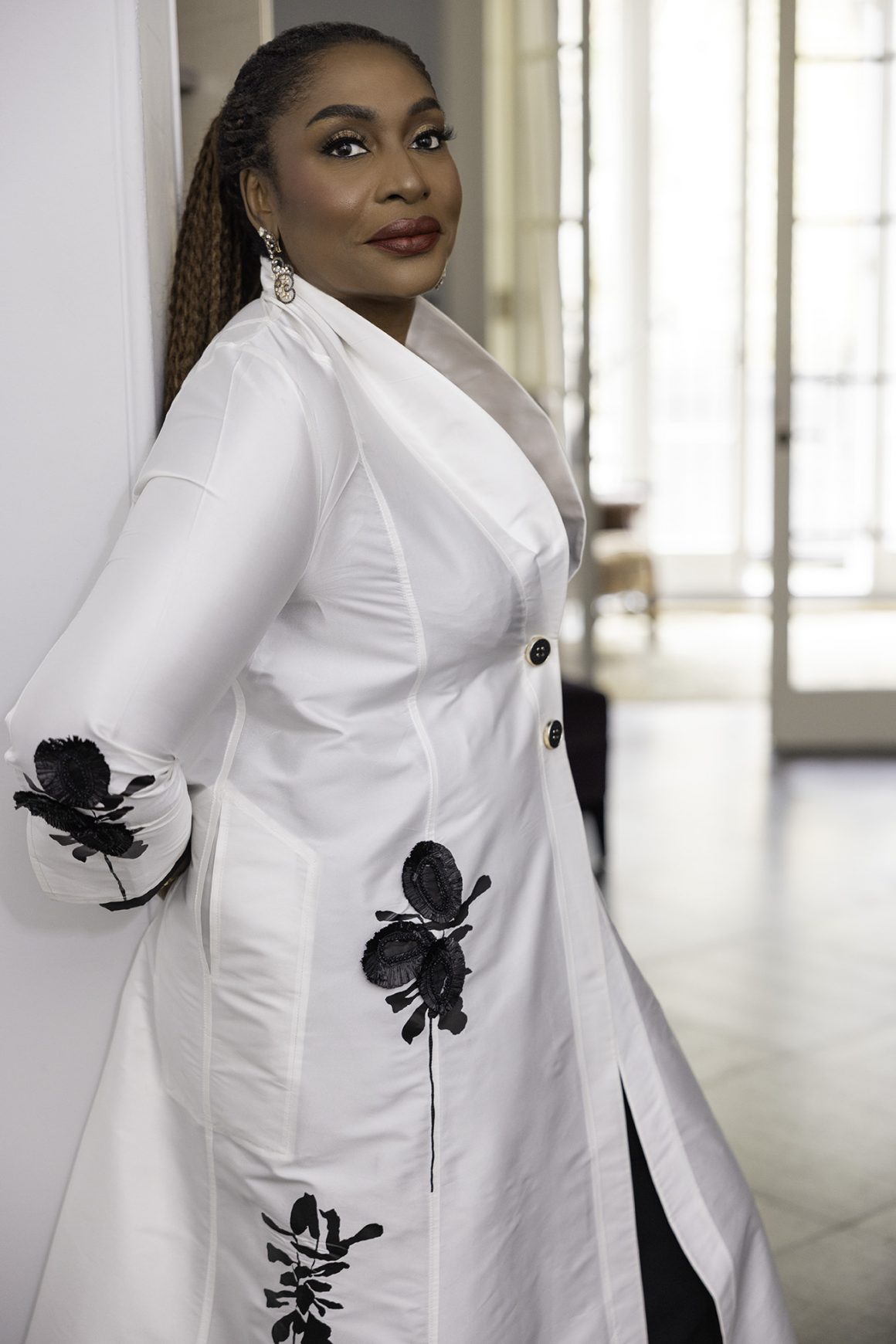
What are your hobbies or interests outside of your work in the entertainment industry?
I love to read. Anything and everything—magazines and books. I love gardening as well as watching films and TV series. My interests include interior decoration, photography, and music.
Lastly, what legacy do you hope to leave behind as a veteran actress, producer, and advocate for women’s rights in the entertainment industry and beyond?
Empowerment of Women: I aspire to empower women in the entertainment industry and beyond by creating platforms and opportunities for their growth and development. This includes providing mentorship, training, and support to help women succeed in their careers and advocating for policies that promote gender diversity and inclusion.
Safe Work Environments: I aim to advocate for safe and inclusive work environments in the entertainment industry where harassment, discrimination, and abuse are not tolerated. I will work towards implementing and enforcing policies and practices that promote safety, equality, and inclusivity.
Representation in storytelling: I strive to promote diverse and inclusive storytelling that reflects women’s realities, experiences, and contributions to society. This includes advocating and driving narratives for more authentic and multidimensional roles for women in film, TV, and other media and challenging gender biases and stereotypes in storytelling.
Advocacy for Women’s Rights: I will continue to be a vocal advocate for women’s rights in the entertainment industry and society at large. This includes advocating for gender equality, reproductive rights, violence against women prevention, and other important issues that affect women’s lives.
Collaborative Approach: I believe in the power of collaboration and cooperation, and I hope to foster partnerships and alliances with like-minded individuals, organisations, and stakeholders to collectively work towards advancing gender equality, the empowerment of women, and positive change in the entertainment industry and beyond.
Overall, my goal is to leave behind a legacy that contributes towards a more inclusive, diverse, and equitable entertainment industry and society where women are empowered, respected, and valued for their talent, skills, and contributions.

